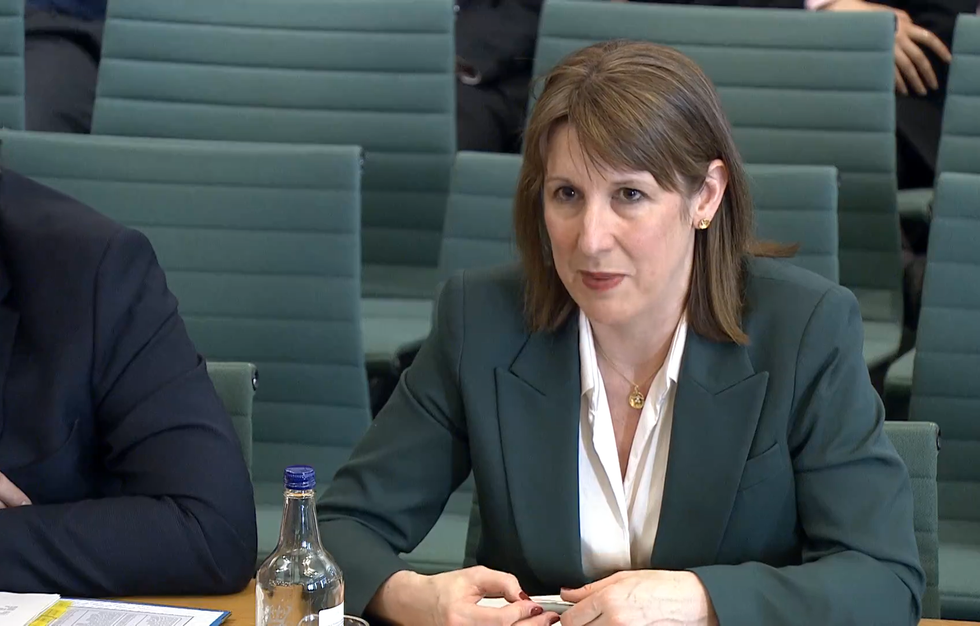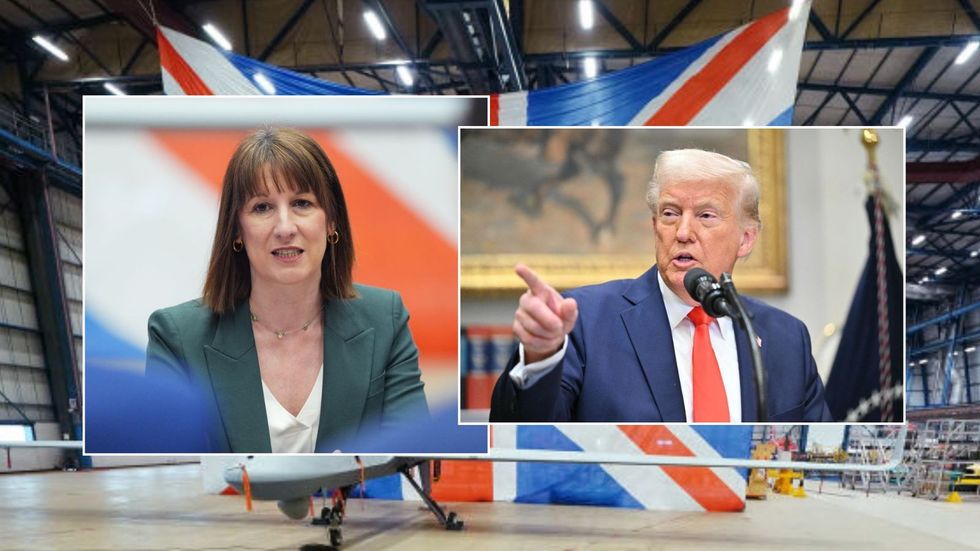Donald Trump’s trade war has pushed UK growth forecasts for 2025 down by a third, with economists now predicting just 0.8 per cent expansion compared to the 1.2 per cent expected in January.
The dramatic reduction comes despite Britain facing lower tariffs than its European neighbours.
Despite the UK being less directly exposed to US trade than some of its global peers, the aftershocks of Trump’s tariffs are rippling through the economy.
A survey of forecasts compiled by Consensus Economics shows UK GDP is now expected to grow by just 0.8 per cent in 2025, down from 1.2 per cent at the start of the year.
This reduction will leave Britain £21.6billion worse off by 2027, according to KPMG, piling further pressure on public finances and increasing the likelihood of tax rises and spending cuts.
Economists warn that the fallout could trigger job losses, especially in export-led manufacturing sectors, though some relief could come in the form of quicker interest rate cuts from the Bank of England.
Rob Wood, economist at the consultancy Pantheon Macroeconomics said: “A large economic hit is guaranteed now, just because of the uncertainty that Donald Trump has created.
“No one is quite sure how long tariffs will stay in place, how open Trump is to negotiation, what size retaliation will be.”

Key UK industries such as car manufacturing and steel have been singled out for extra pain, with 25 per cent tariffs
PARLIAMENTLIVE.TV
Trump’s new trade rules include a 10 per cent tariff on all UK goods sold to the US — even though Britain doesn’t run a large trade deficit with America.
Countries and blocs with bigger trade gaps have been hit even harder, like the EU, which now faces 20 per cent tariffs.
Meanwhile, key UK industries such as car manufacturing and steel have been singled out for extra pain, with 25 per cent tariffs, making it much harder for them to compete in the US market.
While Britain’s biggest exports — services like finance, tech, and consulting — haven’t been targeted, economists warn that the real damage is coming from falling business confidence and investment, not just the tariffs themselves.
The UK economy, already on shaky ground after near-zero growth in the second half of last year and a slight contraction in January, is now under even more pressure.
The Office for Budget Responsibility halved its 2025 forecast last month to one per cent, but economists say that was before factoring in the Trump tariffs.
 UK economy at risk as Trump’s tariff hikes to slow GDP growth and drive inflation, analyst have claimed GETTY
UK economy at risk as Trump’s tariff hikes to slow GDP growth and drive inflation, analyst have claimed GETTYChancellor Rachel Reeves is now confronted with the challenge of addressing these economic setbacks.
The Office for Budget Responsibility has highlighted a £14bn shortfall due to diminished growth and increased debt interest payments.
In response, Reeves has proposed measures including curbing tax avoidance and reducing government operational costs.
However, these strategies may not suffice to bridge the fiscal gap, raising the possibility of further tax hikes or spending reductions.
Sir Keir Starmer insisted that decisions on tax rises were “a long way off” as economists warned him US tariffs would force him to overhaul government spending plans.
Independent analysts rapidly downgraded Britain’s growth forecasts after President Trump threw the world economy into turmoil, with warnings of a possible recession next year and tax rises becoming “ever more certain.”
They said that Reeves was likely to see her plan to balance the books wrecked by lower growth and face a choice at the autumn budget between tax rises, spending cuts and relaxing fiscal rules that she has insisted are non-negotiable.

Oil prices have dropped, which could lead to cheaper fuel
GETTY
Economists at Deutsche Bank estimate that as many as 100,000 jobs could be lost due to the decline in exports and declining business investment. That would wipe out the recent employment gains seen earlier this year.
Investec’s Sandra Horsfield agrees the direct impact of tariffs may be modest, but warned the broader drag from weak global demand, sterling strength, and businesses pulling back could add up to a much larger hit.
Still, others struck a more hopeful tone. Berenberg Bank’s Andrew Wishart believes the UK is “well placed to weather the tariff shock,” trimming his forecast only slightly to 0.9 per cent.
While businesses prepare for tougher times, UK consumers might catch a short-term break. Most people in Britain work in services jobs like healthcare, education, and finance — sectors that have stayed strong, with wages still rising even as inflation falls.
At the same time, oil prices have dropped, which could lead to cheaper fuel.
Dr Eric Golson from the University of Surrey said: “We could even see prices falling in the UK. But in the long run, breaking up global supply chains could lead to higher costs.”


